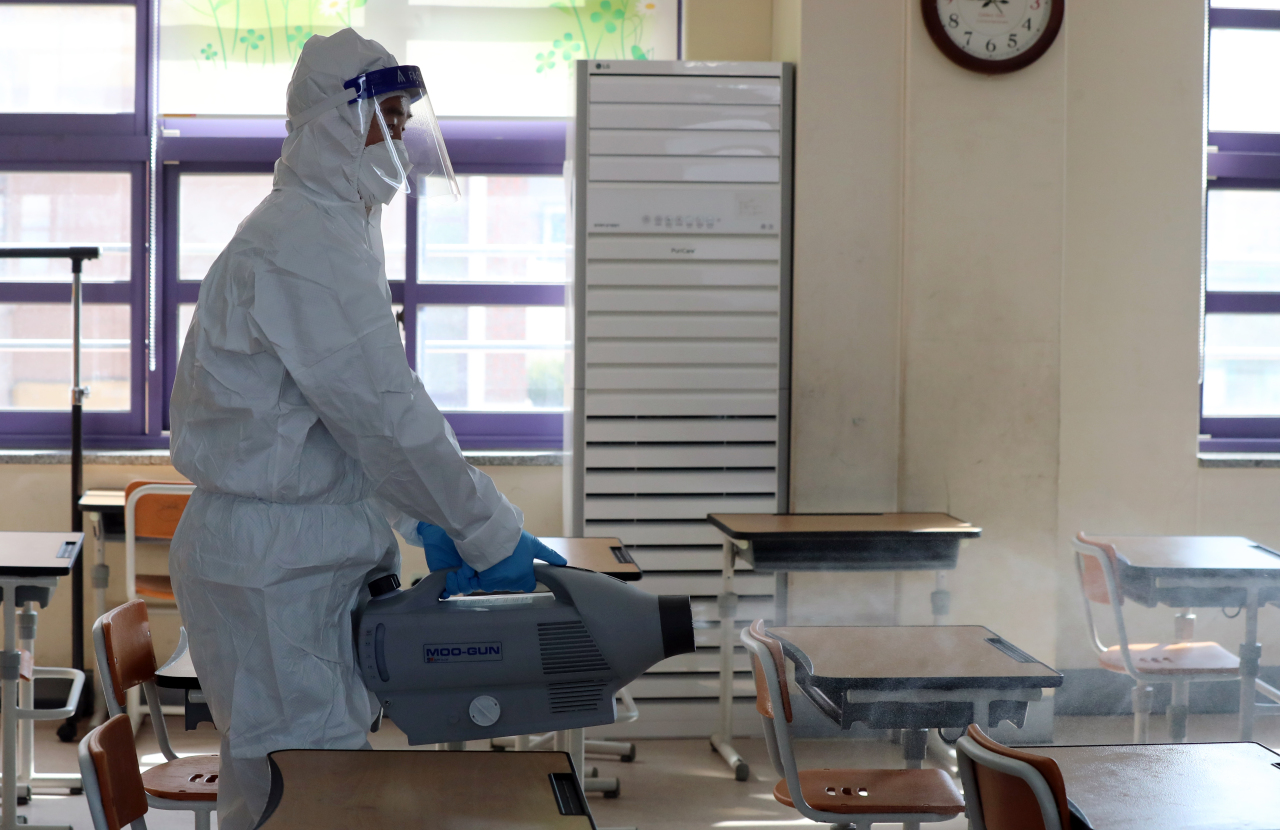
Workers disinfect a classroom at an elementary school in Gwangju, Tuesday. (Yonhap)
Teachers’ unions are voicing out their concerns after the government announced schools will have the choice to provide full remote classes during the first two weeks of March.
The Ministry of Education announced Monday that it has designated March 2 -11 to be a new semester adjustment period, allowing schools to hold online-only classes if needed.
Previously, the ministry had warned schools to refrain from switching to an online-only class scheme. However, it changed its stance with a surge of confirmed COVID-19 cases across the nation.
Teachers’ unions are raising their voices against the new policy, claiming giving autonomy to schools on the attendance policy will create confusion on the ground.
“Schools and faculty members are already worried about carrying out duties related to infectious disease control and prevention in the new semester,” the Korea Federation of Teachers’ Association said Monday through an announcement.
“To give autonomy without specific standards in a situation like this will only put extra stress on faculty members and intensify the confusion at schools,” the announcement read. “If schools’ decisions and the remote class scheme differ from one another, it is obvious that parents will make a streak of complaints.”
Another union of school workers also criticized the new measure.
“Schools and teachers are calling for (the ministry to come up with) a consistent plan with advisory from experts,” the Korean Teachers and Education Workers Union announced. “Different attendance policies from schools will lead to complaints.”
“The ministry should come up with a consistent plan and persuade the people instead of having schools go thorough unnecessary conflicts,” the announcement read.
Earlier this month, the ministry announced schools will have the autonomy to change their attendance policies, based on a new four-tier operation scheme. It advised schools against going completely online unless 3 percent of their students test positive or 15 percent go into self-quarantine.
As confirmed cases continue to rapidly increase, parents have voiced concerns against the “normalcy attendance” measure which involves students returning to classrooms. The ministry eventually took a step back as a result, announcing schools can make individual decisions on attendance for the first two weeks of the new semester.






